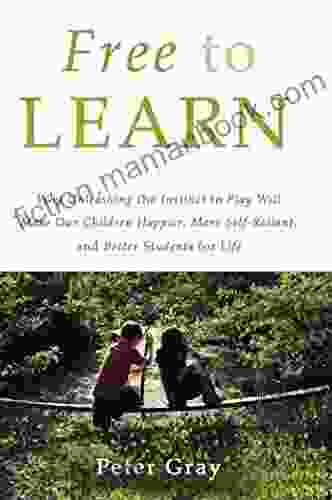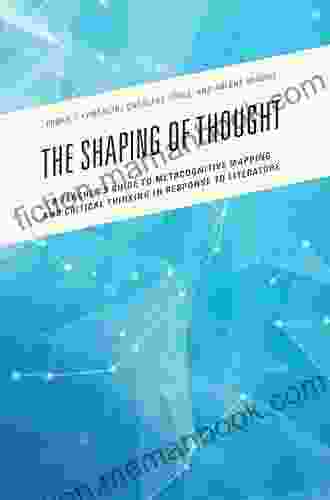The Shaping of Thought: A Comprehensive Examination of Cognitive Processes

Thought, an enigmatic phenomenon that has captivated philosophers, scientists, and artists for centuries, plays a pivotal role in our perception, decision-making, and interaction with the world. This intricate cognitive process involves the intricate interplay of perception, attention, memory, language, and problem-solving. In this comprehensive article, we will delve into the intricate nature of thought, tracing its evolutionary origins, exploring its fundamental components, and examining the factors that shape its development.
Evolutionary Roots of Thought
The capacity for thought evolved alongside the development of the human brain, particularly the prefrontal cortex. This region of the brain is responsible for higher-order cognitive functions, including planning, decision-making, and problem-solving. As humans progressed in their evolutionary journey, the size and complexity of the prefrontal cortex increased, enabling them to engage in increasingly sophisticated thought processes.
5 out of 5
| Language | : | English |
| File size | : | 9634 KB |
| Text-to-Speech | : | Enabled |
| Screen Reader | : | Supported |
| Enhanced typesetting | : | Enabled |
| Word Wise | : | Enabled |
| Print length | : | 122 pages |
Fundamental Components of Thought
Thought is a multifaceted process that encompasses several fundamental components:
1. Perception: The initial stage of thought involves the interpretation of sensory input from the environment. Our senses gather raw data, which is then processed by the brain to create a meaningful representation of the world.
2. Attention: Attention is the ability to focus selectively on specific stimuli or thoughts. It enables us to prioritize information, filter out distractions, and allocate cognitive resources efficiently.
3. Memory: Memory allows us to store and retrieve information, which serves as the foundation for thought. It includes different types of memory, such as short-term memory, long-term memory, and working memory.
4. Language: Language plays a crucial role in shaping thought. It provides us with a symbolic system to represent and communicate our ideas, enabling us to engage in complex reasoning and abstract thought.
5. Problem-Solving: Problem-solving involves the ability to identify and address challenges. It requires the application of cognitive skills, such as analysis, synthesis, and evaluation, to develop effective solutions.
Factors Shaping Thought Development
Various factors influence the development of thought throughout an individual's lifespan:
1. Genetics: Genetic factors account for a significant portion of an individual's cognitive abilities. Variations in genes related to brain structure and function can influence cognitive development and thought processes.
2. Early Experiences: Early experiences, particularly in the first few years of life, have a profound impact on brain development. Nurturing and stimulating environments promote cognitive growth, while adverse experiences can hinder it.
3. Education: Education plays a vital role in shaping thought by providing opportunities for cognitive stimulation, learning new concepts, and developing critical thinking skills.
4. Culture: Culture shapes the values, beliefs, and knowledge systems that influence the ways in which we think and interpret the world around us.
5. Social Interactions: Social interactions contribute to cognitive development by providing opportunities for collaboration, sharing ideas, and learning from others.
Neural Mechanisms of Thought
Cognitive processes, including thought, are made possible by the intricate network of neurons and synapses in the brain. The prefrontal cortex, particularly the dorsolateral prefrontal cortex, is considered the "hub" for higher-order cognitive functions. When engaged in thought, these neurons fire in specific patterns, forming connections that represent concepts, ideas, and solutions.
Thought Disorders and Dysfunctions
Dysfunction in cognitive processes can lead to a range of thought disorders, such as schizophrenia and dementia. These disorders affect the ability to perceive reality, make sound judgments, and engage in coherent thought. Understanding the neural mechanisms underlying these disorders can help in developing effective treatment strategies.
Thought, a remarkable cognitive process, is a testament to the complexity and adaptability of the human mind. Through the intricate interplay of perception, attention, memory, language, and problem-solving, we make sense of the world around us, solve problems, and create knowledge. The evolutionary roots, fundamental components, and factors shaping thought development provide a deeper understanding of this fundamental aspect of human cognition. Further research into the neural mechanisms and dysfunctions of thought will continue to shed light on this fascinating realm of consciousness.
5 out of 5
| Language | : | English |
| File size | : | 9634 KB |
| Text-to-Speech | : | Enabled |
| Screen Reader | : | Supported |
| Enhanced typesetting | : | Enabled |
| Word Wise | : | Enabled |
| Print length | : | 122 pages |
Do you want to contribute by writing guest posts on this blog?
Please contact us and send us a resume of previous articles that you have written.
 Top Book
Top Book Novel
Novel Fiction
Fiction Nonfiction
Nonfiction Literature
Literature Paperback
Paperback Hardcover
Hardcover E-book
E-book Audiobook
Audiobook Bestseller
Bestseller Classic
Classic Mystery
Mystery Thriller
Thriller Romance
Romance Fantasy
Fantasy Science Fiction
Science Fiction Biography
Biography Memoir
Memoir Autobiography
Autobiography Poetry
Poetry Drama
Drama Historical Fiction
Historical Fiction Self-help
Self-help Young Adult
Young Adult Childrens Books
Childrens Books Graphic Novel
Graphic Novel Anthology
Anthology Series
Series Encyclopedia
Encyclopedia Reference
Reference Guidebook
Guidebook Textbook
Textbook Workbook
Workbook Journal
Journal Diary
Diary Manuscript
Manuscript Folio
Folio Pulp Fiction
Pulp Fiction Short Stories
Short Stories Fairy Tales
Fairy Tales Fables
Fables Mythology
Mythology Philosophy
Philosophy Religion
Religion Spirituality
Spirituality Essays
Essays Critique
Critique Commentary
Commentary Glossary
Glossary Bibliography
Bibliography Index
Index Table of Contents
Table of Contents Preface
Preface Introduction
Introduction Foreword
Foreword Afterword
Afterword Appendices
Appendices Annotations
Annotations Footnotes
Footnotes Epilogue
Epilogue Prologue
Prologue Paul Sussman
Paul Sussman Lynne Olson
Lynne Olson Emma Slate
Emma Slate Sarah Snow
Sarah Snow Walter R Borneman
Walter R Borneman Kerry Lonsdale
Kerry Lonsdale Deborah Brown
Deborah Brown Safia Elhillo
Safia Elhillo Winston Groom
Winston Groom Elizabeth Hoyt
Elizabeth Hoyt Michael Bailey
Michael Bailey Jenn Wisbeck
Jenn Wisbeck Claire Pearcy
Claire Pearcy Gabe Brown
Gabe Brown Rogervan Rubattino
Rogervan Rubattino Grace Nichols
Grace Nichols Maria T Codina Leik
Maria T Codina Leik Elaine N Aron
Elaine N Aron Federal Aviation Administration Staff
Federal Aviation Administration Staff Louis Begley
Louis Begley
Light bulbAdvertise smarter! Our strategic ad space ensures maximum exposure. Reserve your spot today!

 Ernest ClineNo More Lies: Breaking the Chains of Deception and Illuminating the Path to...
Ernest ClineNo More Lies: Breaking the Chains of Deception and Illuminating the Path to...
 Anthony BurgessThe Ultimate DIY Guide to Homemade Hand Sanitizer: Protect Against Germs with...
Anthony BurgessThe Ultimate DIY Guide to Homemade Hand Sanitizer: Protect Against Germs with... Harry HayesFollow ·17k
Harry HayesFollow ·17k Mitch FosterFollow ·13.8k
Mitch FosterFollow ·13.8k Preston SimmonsFollow ·11.6k
Preston SimmonsFollow ·11.6k Dominic SimmonsFollow ·2.6k
Dominic SimmonsFollow ·2.6k Felipe BlairFollow ·7.1k
Felipe BlairFollow ·7.1k Stephen FosterFollow ·10.6k
Stephen FosterFollow ·10.6k Jerome PowellFollow ·2k
Jerome PowellFollow ·2k Elliott CarterFollow ·6.2k
Elliott CarterFollow ·6.2k

 Abe Mitchell
Abe MitchellWhy Unleashing the Instinct to Play Will Make Our...
Play is an essential part of childhood. It is...

 Rubén Darío
Rubén DaríoTheory in Health Promotion Research and Practice
Theory is essential...

 Howard Blair
Howard BlairFailing Students or Failing Schools: Uncovering the Root...
In the United States, the issue of failing...

 Ira Cox
Ira CoxPoetry From the Heart Chope: A Symphony of Soul and Verse
Embark on a literary...

 Easton Powell
Easton PowellThe Witch Hunt: Wicked Witches of Shadow Woods
In the cursed woods of...
5 out of 5
| Language | : | English |
| File size | : | 9634 KB |
| Text-to-Speech | : | Enabled |
| Screen Reader | : | Supported |
| Enhanced typesetting | : | Enabled |
| Word Wise | : | Enabled |
| Print length | : | 122 pages |










